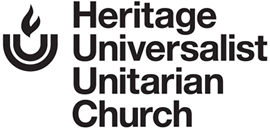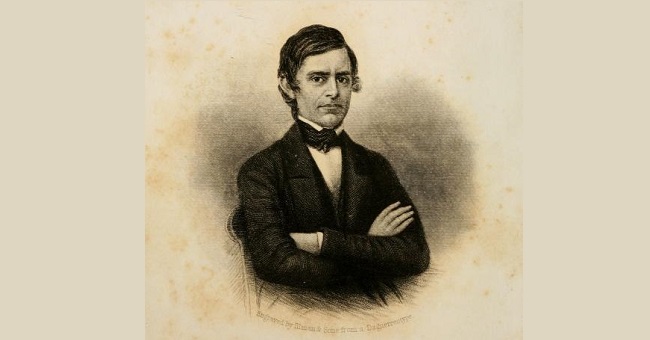by Mike Roberts
The bedrock heritage of the Universalist faith is universal salvation. It is difficult today in a time of less strident preaching to imagine the threat of everlasting damnation hanging over the Christian world of centuries past. The Reverend Abel C. Thomas was pastor of our church from 1847-1851. In his autobiography, he cites a letter from a church member who found Universalism in his Newark, New Jersey church in 1834.
She related,
Dear Brother, I was born and cradled into Orthodoxy. My parents were wealthy and I had every advantage of education and society, and a large circle of relatives and friends. My parents were very kind and indulgent; my brothers and sisters were very attentive and affectionate. You would naturally suppose that I could not be otherwise than happy.
I was early enjoined to love and fear God. The former I could not do—but the latter I did to perfection. Often in my earliest childhood I wished I was a lamb, a kid or a butterfly— or anything without a soul to be in danger of endless torment.
I was told that I had once an amiable and excellent brother, who died at the age of fifteen—long before my memory; but virtuous as he was, on account of not being a member of the church, he was suffering the just judgment of a righteous God—which was to burn eternally in a lake of liquid fire! The thought was too heart-rending to be endured. I often wished that I had the power to dethrone the Deity, and release a beloved brother whom I had never seen.
At a very early age there was a great revival of religion in the church of which my parents were members. I was awakened to inquire, What shall I do to be saved? A deacon in our neighborhood would often say, “I would willingly save you, if I had the power.” Oh how wretched was my case! If God were only as good as our deacon, I might not despair.
In a few months I was enabled to believe that Christ would save me from eternal wrath. I rejoiced in this hope— but soon I was taken sick …. Everything was done for me that could be done. Our preacher said I was one of his best members, and that God was merciful, and myself an heir of heaven. But, I remained in this state of agony and despair for six or eight months.
I then enjoyed comfortable hope again, but was never happy when I thought my husband and children were in danger of being lost. I held a dear little infant in my bosom and wished it might remain forever in infancy, that it might not incur the awful hazard.
Think then, under these circumstances, how great the transition, when listening to your discourse under the text, “What is Truth?”— I was brought out into the glorious light of the gospel. I was happy. I could have shouted aloud with joy. My friends were removed from the bottomless pit of despair, or, rather, the pit was annihilated from my mind, and heaven was ringing with loud anthems of praise to the Lamb, and to Him who sitteth on the throne forever and ever.
I thank heaven for this great deliverance through your instrumentality; and may the Lord be with you and bless you in your outgoings and incomings, is the prayer of
~ Your sister in Faith
Finding Universalism was not limited to lay members. Our first minister, Josiah Waldo, was ordained as a Presbyterian. However, at the funeral and interment of his beloved mother, Waldo heard the Presbyterian minister proclaim that his church-unaffilliated mother was doomed to spend eternity in Hell. He stated, “This day’s work settled the fate of orthodoxy for me. It was standing by her grave that day, while the wound the priest had inflicted was fresh and bleeding, that I made a vow to be revenged by devoting my life to blowing the obnoxious creed sky-high. I have kept the vow to this hour.”
Image: Rev. Abel Thomas, from the frontispiece to “Autobiography of Rev. Abel C. Thomas, Including Recollections of Persons, Incidents and Places.”
Image source: Autobiography of Rev. Abel C. Thomas.

